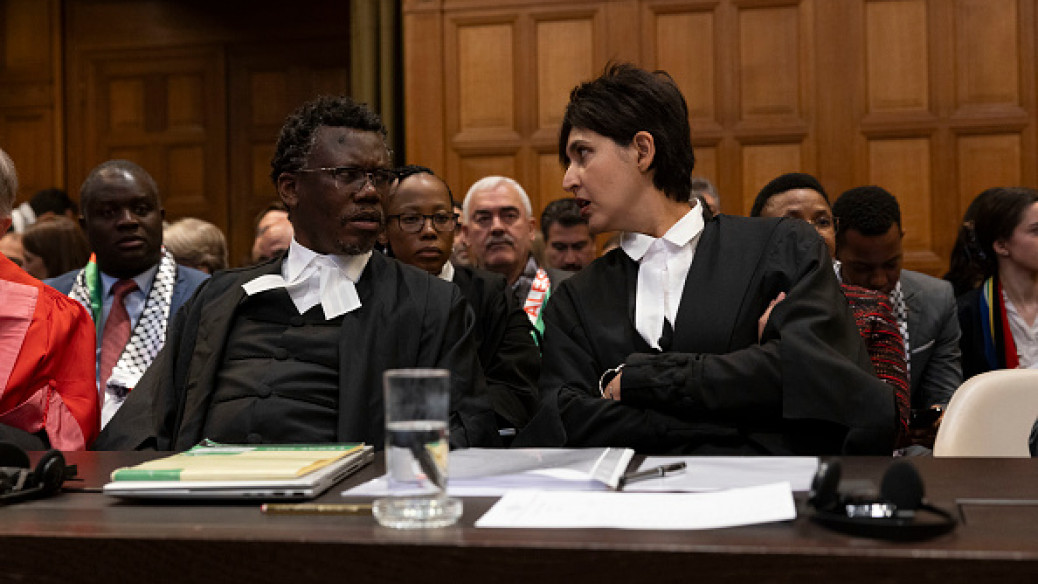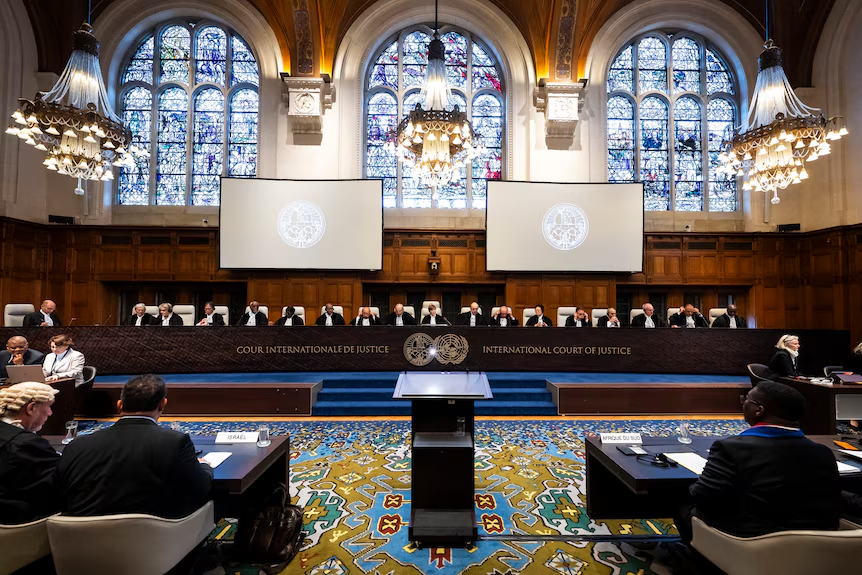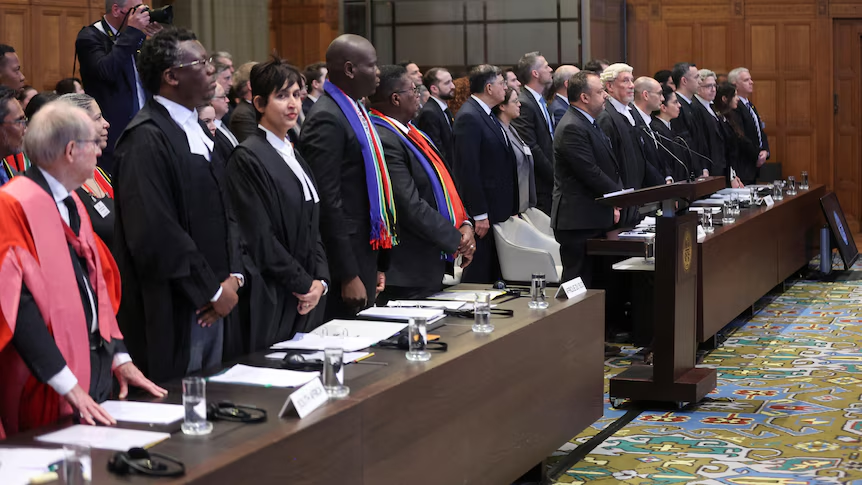.webp)
Vidushi Gaur/ New Delhi
The International Court of Justice (ICJ) in The Hague witnessed a courtroom moment that echoed across continents. A calm yet unyielding voice described the bombing of Gaza, the killing of families in their homes, and the starvation of a besieged population.
The voice belonged to South African advocate Adila Hassim, the lawyer who has become one of the most recognisable faces in the historic 'genocide' case filed by South Africa against Israel. Her words, precise, legal, but charged with unmistakable urgency, signalled not just a courtroom argument, but a global moral reckoning.
To understand the force behind Hassim’s advocacy, one must look at her roots. Born in 1972, she grew up in apartheid-era South Africa, where inequality was not an abstract legal debate but a lived reality. Her career was shaped by the transition from apartheid to democracy, particularly South Africa’s vision of a constitution grounded in dignity, equality and socio-economic rights.
 Adila [R] is said to prefer to keep her ethnic background private, and only be portrayed as a South African citizen
Adila [R] is said to prefer to keep her ethnic background private, and only be portrayed as a South African citizen
After studying law at the University of Natal, Hassim earned her LLM from Saint Louis University in the United States and went on to secure a JSD, a doctorate in law, from Notre Dame Law School. She returned to South Africa not to pursue corporate law but to work where the law touches the lives of the most vulnerable. Early in her career, she clerked at the Constitutional Court, gaining first-hand experience working on landmark constitutional cases.
Her professional focus soon crystallised: the law must protect human beings, not just legal texts. Hassim went on to co-found Section 27, a public-interest legal organisation named after the constitutional clause guaranteeing the right to health, food, water, education and social security. Her work played a crucial role in strengthening access to HIV/AIDS treatment across South Africa, fighting discrimination and pushing governments and corporations to uphold human-rights obligations.
She also co-founded Corruption Watch, reflecting her broader belief that ethical governance and social justice are inseparable. Over the years she became one of the most respected lawyers in the Johannesburg Bar, specialising in constitutional, health and administrative law. Whether fighting for access to medicines, for accountability in public institutions or for dignity in healthcare systems, Hassim built a career without compromising her moral compass.
 Fifteen permanent and two nominal judges adjudicated the South Africa v Israel genocide case at the International Court of Justice.
Fifteen permanent and two nominal judges adjudicated the South Africa v Israel genocide case at the International Court of Justice.
Despite her decades of work, it was the ICJ hearing that placed her under the full glare of the global spotlight. South Africa’s case alleges that Israel violated the 1948 'Genocide' Convention through mass killings of Palestinians, displacement of civilians, deliberate deprivation of essential supplies and conditions of life aimed at destroying the population in Gaza.
Standing before the judges of the world’s highest legal body, Hassim presented the opening argument. Her tone never faltered, even as she described scenes many find unbearable to read. She spoke of infants dying in incubators after power cuts, families buried under rubble, children undergoing amputations without anaesthesia, and deliberate obstruction of humanitarian aid.
“This is one of the heaviest conventional bombing campaigns in the history of warfare,” she told the Court.
Her speech resonated globally. It was the clarity of legal argument fused with moral conviction, a rare combination in international litigation. In that moment, the world saw not just a lawyer, but a woman articulating the suffering of millions who have no seat in court.
 Adila Hassim (facing camera) says the extent to which women are under-represented as advocates and judges in the ICJ is problematic.
Adila Hassim (facing camera) says the extent to which women are under-represented as advocates and judges in the ICJ is problematic.
Hassim’s presence on that stage carried significance beyond the case itself. The ICJ has long been criticised for the scarcity of women and people of colour in top legal teams. The sight of a South African Muslim woman, from a post-colonial nation, addressing one of the most consequential international hearings in recent memory was groundbreaking.
Later, she acknowledged this imbalance publicly and urged legal institutions to widen access and representation. Her success is a reminder of how legal systems, historically controlled by powerful states, are being challenged by voices long kept outside the courtroom.
Adila Hassim is a reminder of what public-interest law can achieve when pursued without fear. In a world numbed by images of war and injustice, she has demonstrated that law can still be a tool of accountability, not merely a shield for the powerful. Her appearance at the ICJ marked not the apex of her career, but another chapter in a life dedicated to defending those whose rights are threatened. Whether fighting for HIV patients in South Africa or for civilians in Gaza, her mission has remained constant, to make justice real, not rhetorical.
ALSO READ: Tazaiyun Oomer's vision changed the lives of disabled and empowered Muslim women
In the days ahead, the legal battle will continue. But whatever the outcome, history will remember that when the world debated 'genocide', a South African lawyer named Adila Hassim stood before the judges and made sure the cries of the oppressed were entered into the record of humanity, not in silence, but in truth.
